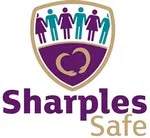ACIS: https://www.bolton.gov.uk/youth-support/support-families-new-uk
Telephone: 01204 338055
Support for families that are new to the UK and speak English as an additional language.
Be Kind To My Mind: www.bekindtomymind.co.uk
Website to help young people to understand more about mental health conditions or circumstances that may impact on your mental health; how to cope with your feelings and what support is available.
Bolton 360: https://www.nhs.uk/services/service-directory/bolton-360%C2%B0-young-people-s-substance-misuse-service/N10965491
Telephone: 01204 462444
Specialist intervention for young people, families and children affected by substance misuse.
Bolton Lads and Girls Club (BLCG): https://www.blgc.co.uk/
Offering a range of different services for young people, including support around lower-level mental health, general wellbeing, building resilience, self-confidence and self-esteem, social and peer relationships, personal and social development, personal safety, understanding feelings, emotions and associated behaviours, risk of homelessness, and preventing school exclusion and offending behaviour. BLCG also offer a young carers service, as well as a bereavement support service.
Chat Health
ChatHealth – new text health service launches | Bolton NHS FT (boltonft.nhs.uk).
Contact for children & young people: 07507 331753. For parents: 07507 331751.
Confidential texting service for advice and support from a healthcare professional for young people between ages 11-19. Support is available on a variety of topics, including bullying, emotional health & emotional wellbeing, relationships, sexual health, drugs & alcohol etc.
Parents can also text a specialist nurse for advice around a range of topics, including child development, behavioural issues etc.
ChildLine: www.childLine.org.uk
Telephone: 0800 1111 Counselling service for parents, children and young people. It also offers multilingual services to South Asian communities living in the UK. Languages include Bengali/Sylheti, Guajarati, Hindi, Punjabi, Urdu and English. Help and advice is free and confidential.
Endeavour: https://www.endeavourproject.org.uk/
01204 394 842
A registered charity offering a wide range of services including front line community based support, group work and counselling for those affected by domestic abuse. Also includes a pet fostering service to enable those with pets to flee an abusive household without surrendering or leaving their animals.
Fort Alice: https://fortalice.org.uk/
Telephone: 01204 701846 / 01204 365677 (24 hour support and advice line)
A charity offering support to people affected by domestic abuse. Support includes a refuge service, group work programmes, counselling, an IDVA service for high risk cases, and a children and young persons service.
Give Us A Shout: https://giveusashout.org/
24/7 text service, free on all major mobile networks, for anyone in crisis anytime, anywhere. It’s a place to go if you’re struggling to cope and you need immediate help. Text 85258.
Kooth: www.kooth.com
Online mental health support for children & young people via an app. Kooth gives children and young people access to an online community of peers, as well as a team of experienced, accredited counsellors.
Maudsley Charity:familiesunderpressure.maudsleycharity.org
For families who are feeling the pressure of parenting. Simple tips and tricks, formulated by researchers and NHS mental health experts, which are backed by science and proven to work with families.
Mermaids: https://mermaidsuk.org.uk/
Telephone: 08088 010400
Supporting trans, non-binary and gender-diverse children, young people and their families
Mind: www.mind.org.uk
National charity organisation providing information, advice, and campaigning to promote and protect good mental health for everyone.
NHS Choices: www.nhs.uk
Telephone: 111 The NHS Choices website contains information about all aspects of health. NHS 111 is a fast and easy way to get the right help, whatever the time. NHS 111 is available 24 hours a day, 365 days a year. Calls are free from landlines and mobile phones.
Samaritans: www.samaritans.org
Telephone: 116 123 (any time) National minicom number: 08457 90 91 92 Email: jo@samaritans.org Address: Chris, PO Box 9090, Stirling, FK8 2SA Samaritans is a confidential emotional support service for anyone in the UK and Ireland. The service is available 24 hours a day for people who are experiencing feelings of distress or despair, including those which may lead to suicide. Volunteers offer support by responding to phone calls, emails and letters. Alternatively, people can drop into a branch to have a face to face meeting.
The Parallel: https://www.boltonft.nhs.uk/locations/the-parallel-young-peoples-health-centre/
01204 462444 (Mon – Fri 9am-6pm)
Emotional, physical and sexual health service for young people.
Winston’s Wish:www.winstonswish.org.uk
Freephone helpline: 08088 020 021 Provides specialist child bereavement support services across the UK, including in-depth therapeutic help in individual, group and residential settings.
Whysup: https://www.whysup.co.uk/
Whysup promotes positive mental health and can help with barriers to this, including concerns about body image, gaming, gambling, substance misuse and resilience. The team frequently come into school to support with personal development.





